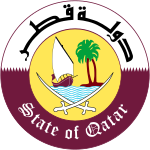
Article 133
Court sessions shall be public save when a court decides, for the interest of public order or morality, to hold them in camera. In all cases, the pronouncement of judgments shall be made in an open session.
Article 134
Judges shall not be subject to removal from office save in cases specified by the law. The said law shall also specify the rules and disciplinary matters applicable to Judges.
Article 135
The right of litigation is inviolable and it shall be guaranteed to all people. The law shall specify the procedures and manner of exercising this right.
Article 136
Public prosecution shall conduct public actions in the name of the people, supervise the law enforcement, and ensure the enforcement of criminal laws. The law sh all regulate the functions of this body, specify the condition and guarantees pertaining to the staff discharging the functions of the same.
Article 137
The judiciary shall have a Supreme Council to supervise the proper functioning of courts of law and their auxiliary organs. The law shall determine the composition, powers and functions of the said Council.
Article 138
The law shall determine the competent body entrusted with the settlement of administrative disputes and define its structure and manner of discharging its functions.
Article 139
The law shall regulate the method of settling conflicts of jurisdiction and also judgments among the judicial bodies.
Article 140
The law shall specify the competent judicial body for settling of disputes pertaining to the constitutionality of laws and regulations, define its powers and method of challenging and procedures to be followed before the said body. It shall also specify the consequences of judgment regarding unconstitutionality.

